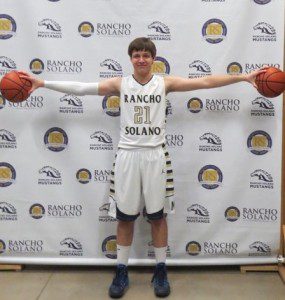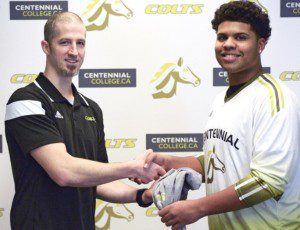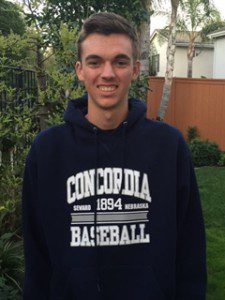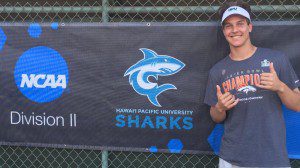It’s your son or daughter’s senior year in high school. They just received an official visit invitation from a college coach. The dream of playing their sport in college is within reach. Given the intense competitiveness of college recruiting, the invitation is a special honor. It means your student-athlete is being recognized for their hard work, dedication, and achievements. There’s no doubt this college coach is very interested in having them become a member of their team.
However, waiting until your child’s senior year and hoping for an official visit invitation may be inadvertently risking their ability to generate offers from other coaches/colleges.
NCAA guidelines provide high school recruits two basic types of college visits: unofficial and official visits. The abridged definitions are as follows:
The unofficial visit is any visit by you and your parents to a college campus paid for by you or your parents.
During an official visit, the college can pay for transportation to and from the college for you, lodging and meals. Before a Division I college or university may invite you on an official visit, you must be a senior and will have to provide the college with a copy of your high school transcript and ACT, SAT or PLAN score and register with the NCAA Eligibility Center.
There are three main factors driving the importance of the unofficial visit in college recruiting today.
1.) Early Verbal Offers
College coaches are recruiting younger and younger student-athletes every year. Although each sport has its own NCAA recruiting guidelines and nuances, it’s not uncommon for high school freshman and sophomores to receive D1 verbal offers. These earlier recruiting cycles mean that college coaches cannot risk losing a top recruit by waiting until a prospect’s senior year to offer them an official visit. As a parent, it makes sense to want to minimize your costs and hope that an official visit invitation materializes in your son or daughter’s senior year. However, by not actively pursuing other realistic roster spots, you’re potentially diminishing their ability to generate verbal offers from other coaches/programs that are recruiting much earlier than that.
2.) College Recruiting Budgets
College sports programs have limited resources to locate and attract proper-fit high school student-athletes. Although each college and university establish their own recruiting budget and allocation per sports program, let’s look at the University of Notre Dame as an example.
A few years ago, the Fighting Irish had one of the highest annual college recruiting expenditures in the nation, spending approximately $2,000,000.00 for all of their sports programs. To add perspective, Notre Dame’s $2,000,000.00 figure easily doubles, triples or quadruples that of many other low to mid-NCAA DI programs. Relating Notre Dame’s recruiting expenditures to NCAA DII and DIII programs would be like comparing the gross national product of the U.S to that of Denmark. There simply is no comparison.
The two sports programs in any school that normally dominate recruiting budgets are football and basketball. The simple reason: they typically produce higher revenue generating opportunities for their school. At Notre Dame, 75% or approximately $1.5 million dollars was spent on 3 sports programs: football and men’s/women’s basketball (with football consuming the lion’s share at $1,000,000.00).
There are almost 8 million high school student-athletes in the U.S. Roughly 65% of all college recruiting expenditures to go towards travel costs (i.e. airfare, hotels, transportation, entertainment, and on/ off campus recruiting activities). Given these figures, and knowing that most colleges have far less money to spend on recruiting than a school like Notre Dame, it’s easy to see why college sports programs have a difficult time locating and evaluating all of the talented high school student-athletes in the U.S and abroad. They simply do not have the resources to accomplish the task. This is even more evident if your student-athlete competes in sports outside of football and basketball.
3.) Building Relationships
An unofficial visit allows the opportunity for your son or daughter to begin building a personal relationship with a coaching staff outside of stated contact rules and windows.
From the coaches’ perspective, these visits provide an invaluable opportunity to meet with a recruit face to face and learn more about their backgrounds, upcoming competition schedules, and personality. It allows the coach to legally meet a recruit outside of established “contact” rules and does not adversely impact their minimal recruiting budgets. A coach knows that when a family pays to travel for an unofficial visit, they probably have a genuine interest in their school/sports program and are not just fishing for an offer.
For the families, these visits provide invaluable information as to the viability of a school and sports program being a potentially good fit for their student-athlete. It’s one thing to see and learn about a school and sports program on-line and quite another to see it all first hand by meeting the coach, walking the campus, visiting a classroom, eating the food and meeting with administrators. If time permits and the travel costs fall within the family budget, an unofficial visit can produce tangible outcomes and results. It may ultimately provide your son or daughter a distinct advantage over other recruits that have not personally met with the coach.
In the previous blog post, we discussed that waiting until a child’s senior year to receive an official visit invitation may be risking their ability to generate offers from other coaches/colleges. Instead, there is still the opportunity to make unofficial visits.
In order to ensure a productive visit for your student-athlete and the college coach, we collected some important guidelines:
Honest and Accurate Evaluation
If your student-athlete has not already heard from a particular college or coach of interest than prior to scheduling an unofficial visit, get an honest and accurate evaluation from a club or high school coach. Ask them to assess their abilities and what level they may see them playing in college. Sometimes, in order to get reliable feedback, it also may be necessary to contact local coaches from different teams/organizations that have seen your child compete or where you may send a highlight tape. Try to get multiple evaluations to paint an accurate assessment and take the emotion out of this process. Then begin matching your child’s athletic and academic abilities to the proper collegiate sports divisions (DI, DII, DIII, NAIA or Junior Colleges) and schools. If your child is strongly dedicated to playing their sport in college, don’t waste your family’s time and money by taking an unofficial visit to a school where the sports program or school is not a potential match for them athletically or academically. (Unfortunately, this is the point where many families don’t accept the reality of their child’s collegiate potential and continually chase “dead-end” options.)
Scheduling an Unofficial Visit
Do not just show up on campus unannounced and ask to meet with the coach. If you do, more likely than not, you will be handed to an assistant coach who is being pulled away from a project or deadline and will have little time for you. This may end up as a less than ideal visit.
Have your son or daughter email the college coach approximately 2-3 weeks before your planned visit and provide your schedule availability. In the same email, share specific athletic and academic background information, video and grad year. In the email, ask if the background matches the coaches’ recruiting needs. If the coach sends a generic response, politely responds there is not a match at this time, or does not respond back to one or two email attempts, don’t schedule the visit. If the coach responds in the affirmative, schedule the visit. Then be prepared to ask the coach well thought out questions about him/her and their program. Be prepared to answer questions the coach will ask you. Be able to articulate why this school is a potentially good fit for you. Other important things to do on the visit include: scheduling a meeting with admissions, financial aid, or academic departments of interest, visiting a dormitory, sitting in a classroom, eating in the cafeteria and taking an official tour of the campus. It is wise to visit colleges at different division levels to gain a clearer perspective of their offerings and opportunities. Beginning this process as a freshman or sophomore provides ample opportunities to visit and meet coaches at realistic target schools.
Most families have limited travel budgets. So pick your unofficial visits wisely. Save money by trying to coordinate visits with your club team’s tournament travel schedule or family vacations. This recruiting strategy may ultimately help your child play their sport at a college that best meets their athletic, academic, financial, social and geographic needs.









